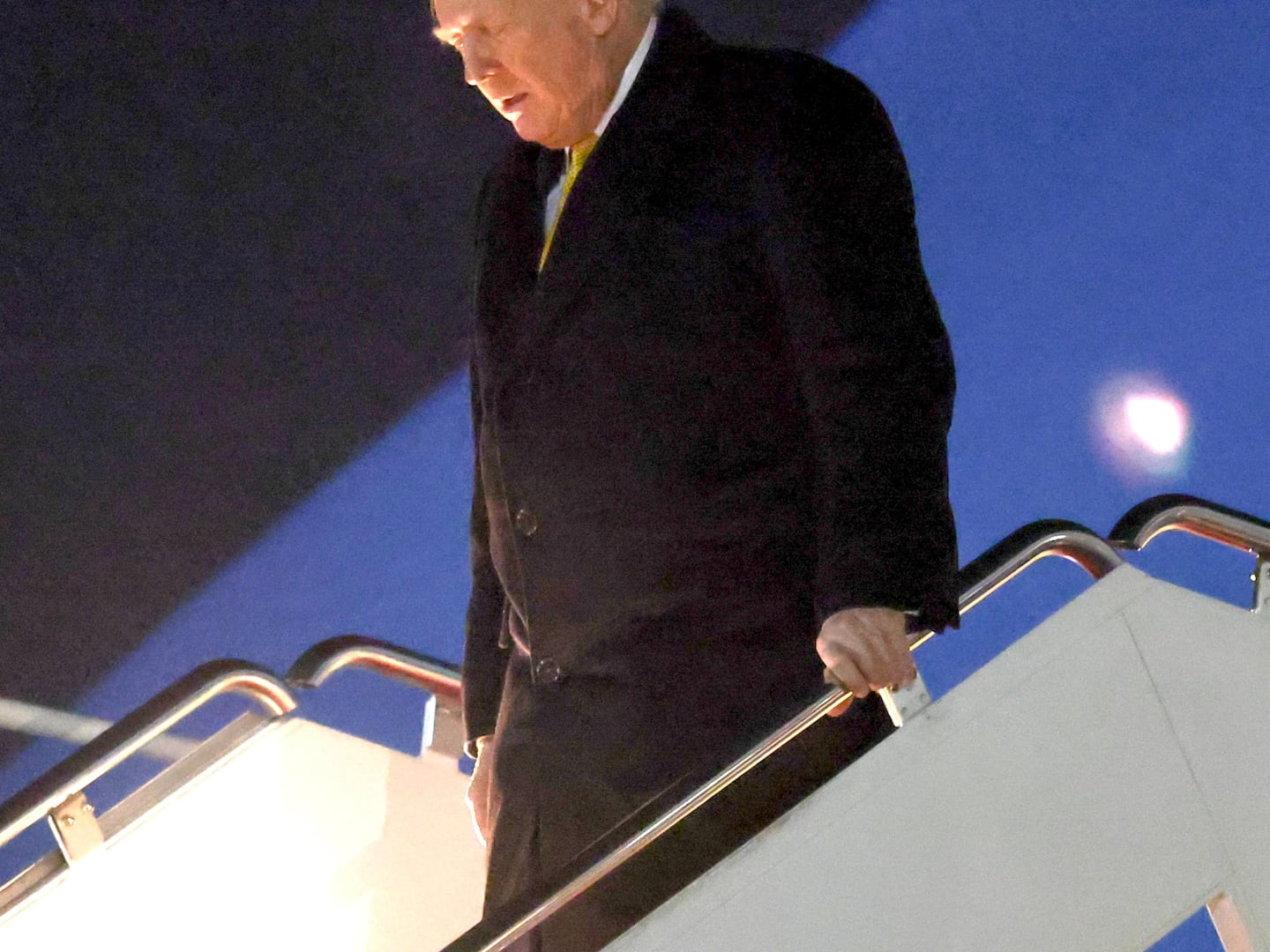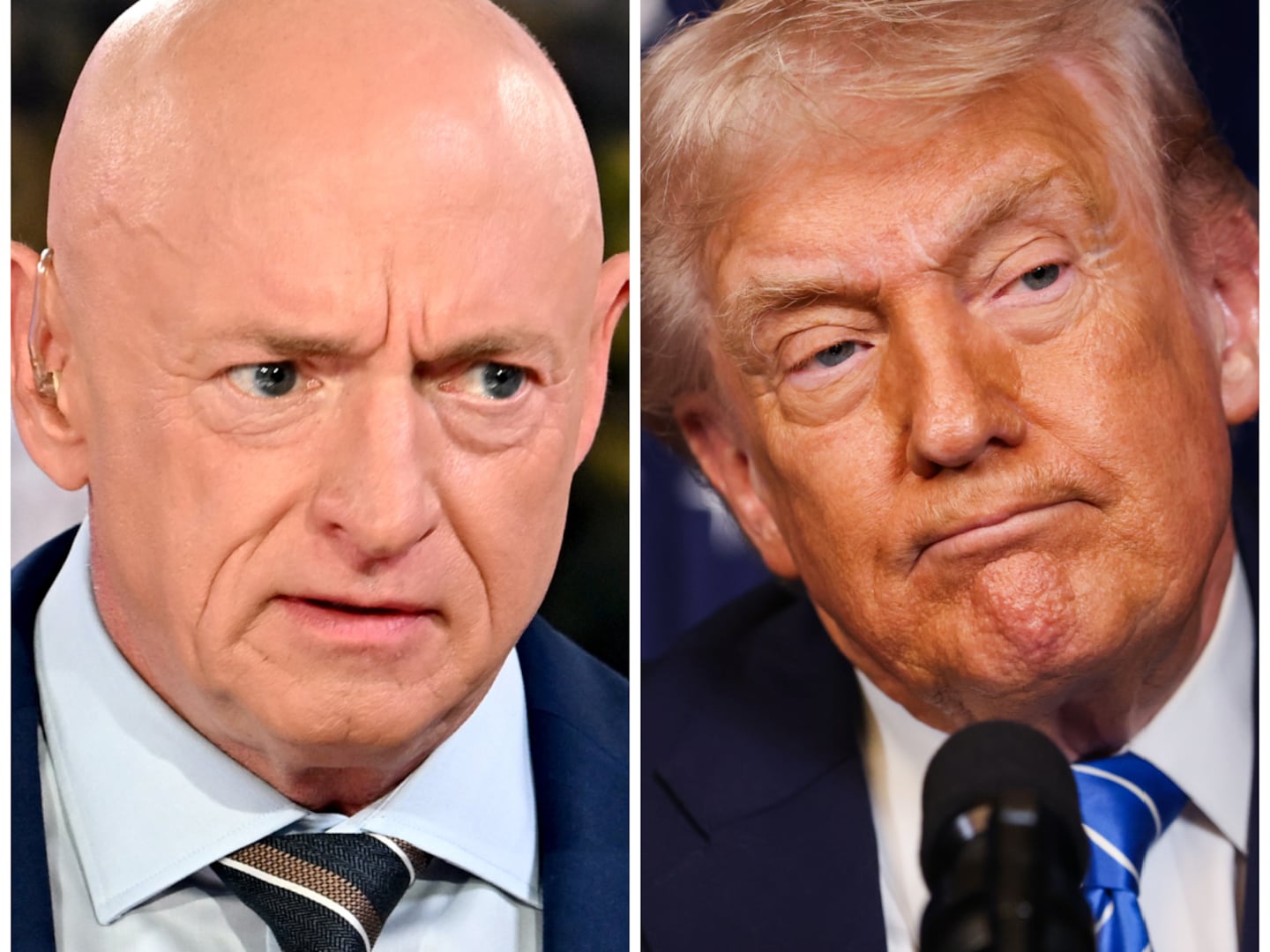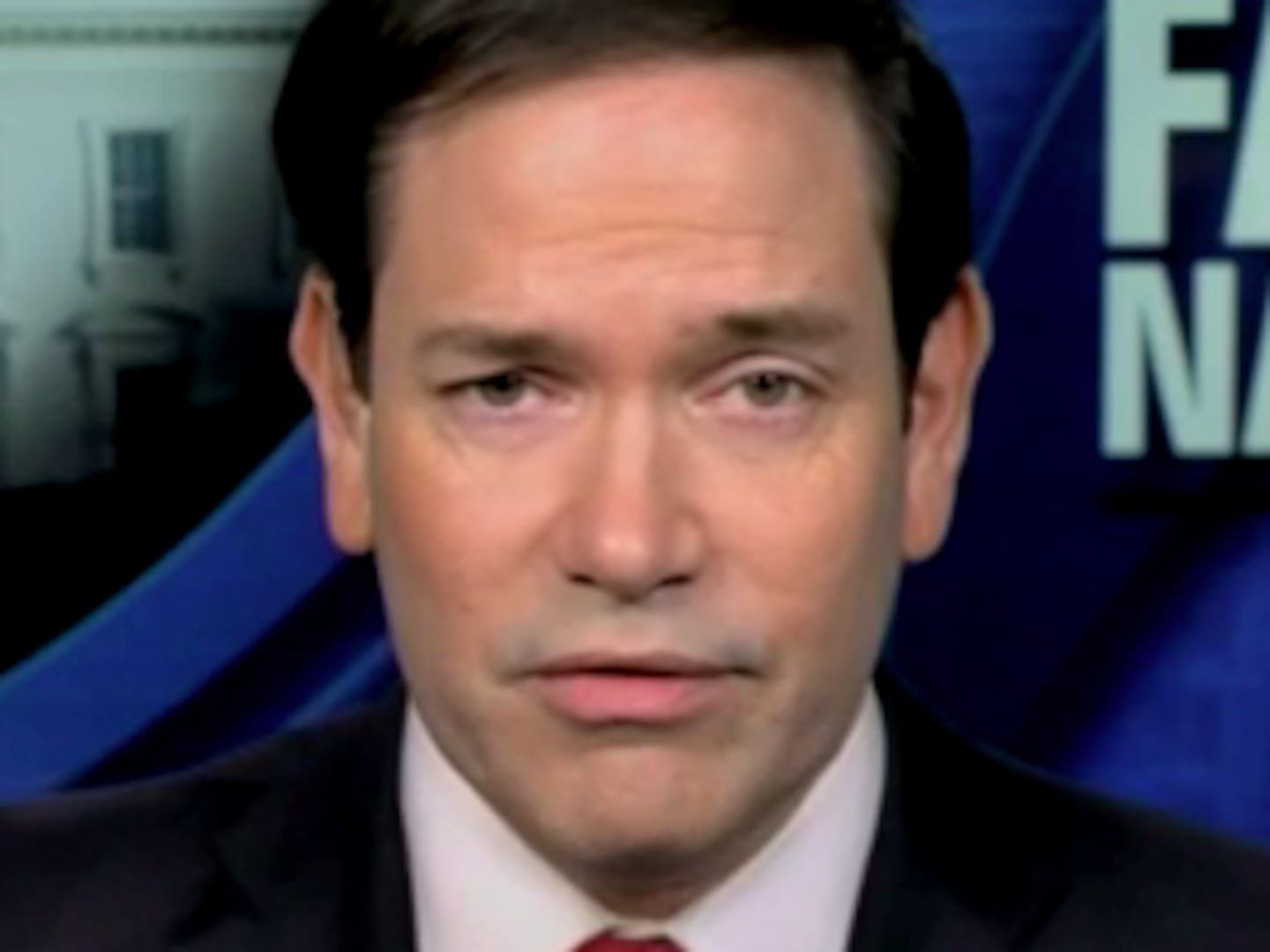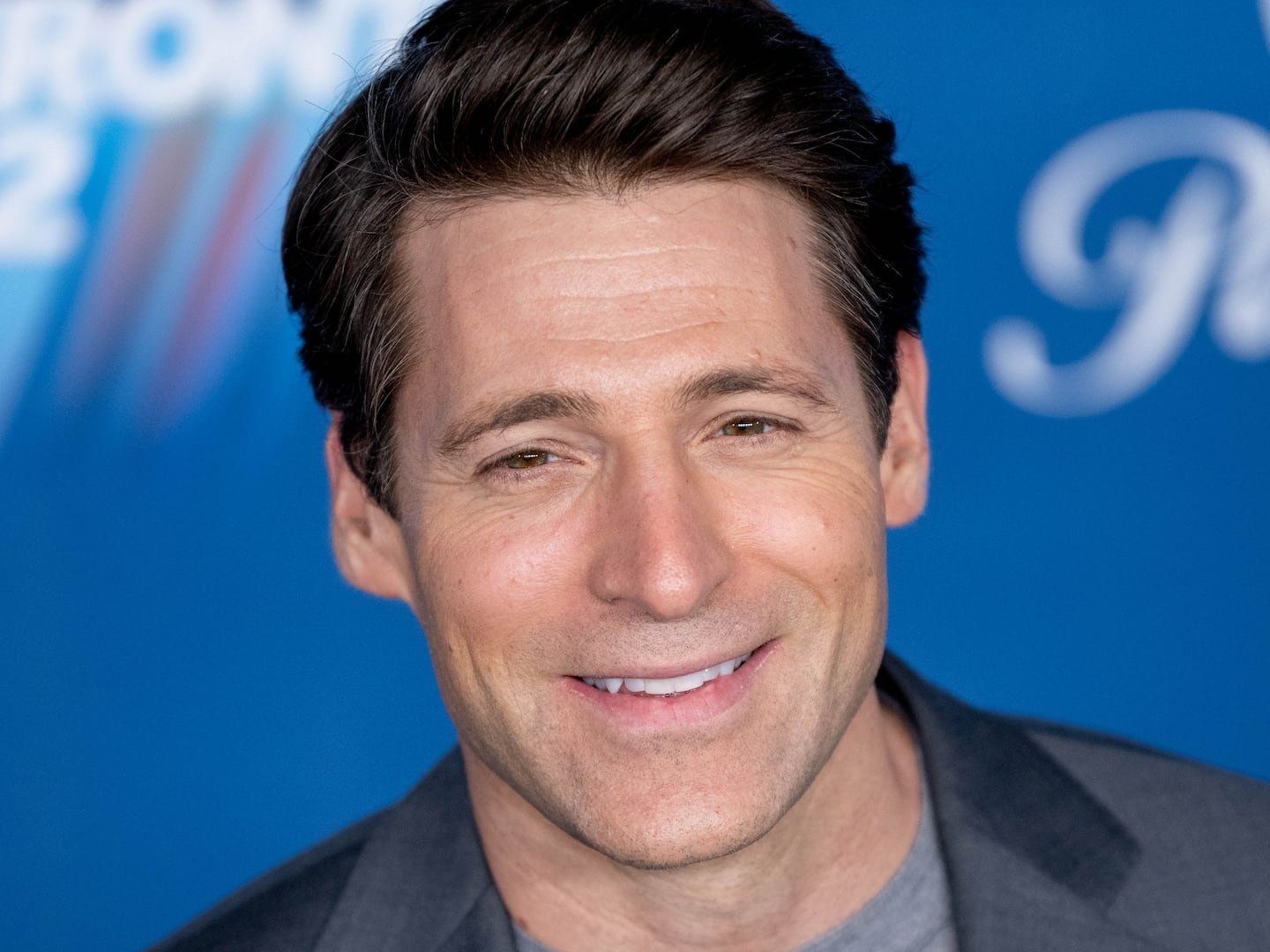Taran Killam had no problem staying busy in the year since he was unceremoniously let go by Saturday Night Live.
In January, he took over the role of King George in Broadway’s Hamilton and today, his new film Killing Gunther arrives, both in theaters and on streaming. In his directorial debut, Killam not only nailed the ambitious and rarely seen mockumentary action genre, but also landed Arnold Schwarzenegger for the title role.
It’s a welcome comeback for Killam, who thrived on SNL for several seasons, perfecting his impressions of Brad Pitt and Ted Cruz and creating at least one truly memorable recurring character in 1860s newspaper critic Jebidiah Atkinson. Then, just before what turned out to be his final season on the show, he was tasked with playing then-long shot candidate Donald Trump. After just a handful of appearances, he was replaced by Darrell Hammond. By the following fall, Hammond was pushed aside for Alec Baldwin.
Killam wasn’t even allowed the triumphant send-off that he watched his friends Bobby Moynihan and Vanessa Bayer receive this past May. But as a triple-threat with Killing Gunther—he wrote, directed and stars—Killam is proving that he has much bigger things in his future.
Below is an edited and condensed version of our conversation.
Your new film Killing Gunther has been in the works for a long time. How did the idea first come about and then how did it evolve into the movie as it stands today?
In setting out to write a screenplay that was going to be entirely from me and from my mind, I just wanted to attempt a noble experiment of something that I hadn’t necessarily seen before in blending my two favorite film genres, which are mockumentary a la Christopher Guest and Eugene Levy and then a more heightened action movie a la Luc Besson or Michael Mann or Quentin Tarantino. Because when I started writing it, I wasn’t familiar with any sort of heightened genre mockumentaries that I could think of. And as much as it’s a mockumentary, it’s also a parody of found footage films, which I enjoy very much, like Cloverfield and Chronicle. But the question I always ask myself is, why are they still filming? If there’s this huge monster attacking the city, why is the camera still on? That was one of the first things that I thought of: What if this documentary crew literally had a gun to their heads and was forced to keep rolling?
Did you write it from the beginning with Arnold Schwarzenegger in mind and was there a backup plan if he said no?
No, he was such a lucky get. Can you think of anybody better, I mean honestly, for the part? The character was named Gunther before he was even an option. We’d made an offer to Bruce Willis, actually, just because I’d worked with him on SNL so there was kind of a personal connection. And Bruce considered it, but ended up passing. But they have the same agent, Bruce and Arnold, and the agent said, you know, Arnold’s looking to do some stuff that’s out of the box, some smaller-scale things, and he’s really been looking to do a comedy. And I couldn’t believe what I was hearing. “Would you consider Arnold Schwarzenegger?” Yes, gladly. Desperately.
Was it the kind of thing where you couldn’t have even imagined that he would be interested in doing it?
That’s exactly right. Yeah, no way. It was always intended to be, as I said, this noble experiment—something low budget that I could shoot with my friends with hopefully a somewhat exciting cameo that comes at the end. And then the second Arnold comes on board it becomes a bigger thing, in only good ways. But it obviously heightened it and made it a much bigger project than I initially set out to achieve. But I’m incredibly grateful for the experience of working with him and working with our entire cast. We had so much fun making it.
It’s been pretty well-established that he plays Gunther, but as you said, it’s kind of a cameo and we don’t actually see his face until late into the movie. Did you ever consider trying to keep his appearance a surprise or was that just not an option?
It was absolutely my creative desire to save the surprise. I think of the people who have seen it [so far], maybe three of them didn’t know that he was in it. And their reactions have been my favorite, because they’re like, “Holy crap, that was awesome!” But the thing is, if Arnold Schwarzenegger gets involved with a project, people want to know about it.
For marketing purposes, at least, that would present a challenge.
Exactly. I remember pitching, what if—guys, hear me out—instead of Arnold’s face [on the poster], it’s just a silhouette? And they were like, no, you’re out of your mind. You clearly don’t know how the Hollywood business works. If you’re lucky enough to get Arnold in your movie, you get people excited to see it.
As a first-time director, what were some of the biggest challenges of pulling off what feels like a pretty large-scale production?
Part of the fun of having a two-man docu crew where the camera is literally involved in the action was choreographing what hopefully feels like bigger action sequences with legitimate consequences—that the danger is very real and these absurd dummies are at the center of it. And that’s where a lot of the humor comes for me. But having never directed anything before, it was really important for me to get those right and to first and foremost be safe. Because we have actual cars blowing up and we have gunfights with blanks and people jumping off of balconies.
Yeah, it’s interesting to have to do that meticulous prep but then make room for what I assume is a lot of improvisation in the film. So how do you reconcile those two things together?
It was a tricky thing, and that was sort of the experiment of it: wanting to keep it loose and wanting to hire actors that I trust and respect to bring a lot to the characters and to the story, and keep that structure of improvisation and a looseness in terms of dialogue and jokes. But when it comes to those action sequences, you have to have such defined parameters. And it does come down to just trusting the people you cast. And I as a first-time director was spoiled with this cast. We’ve already talked about Arnold, but I would do every project with Bobby Moynihan for the rest of my life if I could. And Hannah [Simone] was so amazing and Allison [Tolman] was incredible, Ryan Gaul, the entire cast are really some of the funniest, most talented people that I’ve ever had the pleasure to work with.

Arnold Schwarzenegger and Taran Killam in a scene from 'Killing Gunther.'
Saban FilmsSpecifically Bobby Moynihan and Paul Brittain, both of whom you worked with on SNL, are such incredible improvisers, so that must have been a major asset on set.
Exactly. Paul’s character is maybe my favorite in the movie. And he’s just one of the funniest people I’ve ever met. But the tricky thing with having this sort of action-motivated narrative in the movie is that we had to kill a ton of darlings. For me, I could just let the camera roll on Bobby and Paul and Allison and Ryan and Amir [Talai] and just do 20 minutes of pointless bits. But at a certain point, because we’re trying to create this overall story of cat-and-mouse and chasing down this boogeyman, if it’s not pushing the story forward, it’s one of the first things that has to go, unfortunately. Because there’s so much funny material that ended up not making it into the final cut.
When it was announced that you were not going to be returning to SNL, you kind of speculated that it might have been because this film was in the works. In retrospect, do you think you could have done both?
There’s no way. I don’t know that the movie would have been finished. We wrapped I think the first week of September [2016] and we are a small, independent film, but there was a significant amount of post work to do and visual effects. We didn’t finish the movie until the end of April. There’s just absolutely no way. I think I would have turned into a crazy person. And on top of that, I wouldn’t have gotten the chance to do Hamilton, which was such a blessing. My days were dedicated to post on Killing Gunther and then I’d get to head up to Broadway and perform in one of the greatest musicals of all time at night. So it certainly worked out to my benefit.
In that sense, does it feel like a blessing in disguise the way everything worked out with SNL?
Without a doubt. Definitely, definitely. When a divine entity closes a door, a window opens. And certainly I had multiple open windows. And a set of French doors.
Are you still able to watch SNL after everything that happened?
It’s very easy for me to watch the show. I still have so many friends on it. It was so lovely to watch Bobby and Vanessa [Bayer]’s final season, just because they’re two of my favorite people. And now, I’m still close with Kyle [Mooney] and Beck [Bennett] and Kate [McKinnon] and Aidy [Bryant]. And Mikey Day and I went to college together, we met 17 years ago. It’s the thing I miss the most about doing the show, are the people and the relationships I have there.
I remember there was a big announcement made before the 41st season that you would be playing Donald Trump. But after just a few appearances, they brought back Darrell Hammond and then ultimately replaced him with Alec Baldwin. Why do you think the show struggled so much with how to portray Trump?
I don’t really know and I don’t want to speculate. So it’s something you’d really have to ask Lorne [Michaels] and the higher-ups. I have kept it no secret that it wasn’t a comfortable thing for me at the time and just personally with the way that the world is now, it’s particularly conflicting. Because you’re there to do a job. But at a certain point, there are things bigger than sketch comedy happening in the world.

Taran Killam, Donald Trump, and Darrell Hammond on the SNL stage on November 7, 2015
Getty ImagesI’m sure when you’re there, it doesn’t always feel like there’s anything bigger than what’s happening there.
No, I mean, for most people who get that job it’s the biggest, best thing. And it still is for me. As all things in this life, it’s complicated and varied and SNL presented me with some of the greatest creative moments and strongest relationships that I’ll ever have in my entire life. And I am eternally grateful to the show. But at the same time, there’s also low points and that’s just life.
I know you got a lot of attention this week for talking about the Trump-hosted episode, saying it “only grows more embarrassing and shameful as time goes on.” Do you think that if he had lost the election you would feel differently about that whole thing?
Of course. And that’s just how I feel personally, you know what I mean? That’s just my own personal interpretation. And yeah, if there was a different history, I’m sure that would be different. It’s not and it makes me sad. I think if there’s anything to add, it’s that the shame and the embarrassment is my personal feeling and not a comment about the show. It’s just how I feel about that interaction and my participation in it.
So, now that you’ve done this movie it has the potential at least to open a lot of new avenues as you’re moving into this new phase of your career. So are there other things that you’re hoping to do moving forward that maybe you wouldn’t have had the opportunity to do previously?
I definitely enjoyed directing. Killing Gunther is fairly unconventional from a structural standpoint. So I look forward to hopefully getting the opportunity to attempt to do sort of a more traditional narrative film next time around. And I just really enjoyed the process of seeing a story through to fruition. If I could do that for the rest of my life, every two to three years, I would be a very, very happy individual.






